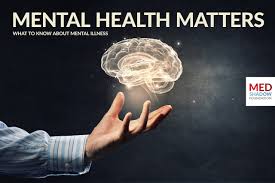In today’s fast-paced world, mental health care is more important than ever. However, accessing quality therapy can often be daunting due to high costs. Thankfully, a range of affordable resources across the USA can help individuals navigate mental health challenges without breaking the bank.
From sliding scale clinics to online platforms and community programs, these options make therapy accessible and budget-friendly. This guide highlights the top affordable therapy resources available, ensuring you or your loved ones can find the support needed to thrive mentally and emotionally.
Whether you’re seeking help for anxiety, depression, or other mental health issues, these resources offer valuable pathways to well-being and healing.

Understanding the Importance of Mental Health
Mental health encompasses our emotional, psychological, and social well-being. It affects how we think, feel, and act, influencing our ability to handle stress, relate to others, and make decisions. Good mental health is crucial at every stage of life, from childhood and adolescence through adulthood.
Key reasons why mental health matters:
- Quality of Life: Good mental health enhances your quality of life. It helps you manage stress, build strong relationships, and recover from life’s setbacks.
- Physical Health: Mental and physical health are interconnected. Poor mental health can lead to or worsen physical health problems such as heart disease, diabetes, and stroke.
- Productivity: Mental wellness boosts productivity and performance at work or school.
- Community Health: When individuals thrive mentally, communities are stronger and more resilient.
The Cost of Therapy in the USA
The cost of therapy can vary widely depending on factors such as location, type of therapy, and the therapist’s credentials. On average, therapy sessions can range from $60 to $200 per session. Without insurance, this cost can quickly become prohibitive.
Factors influencing therapy costs:
- Location: Urban areas tend to have higher costs than rural areas.
- Therapist’s Credentials: Highly specialized or experienced therapists may charge more.
- Type of Therapy: Different therapy modalities (e.g., individual vs. group therapy, cognitive-behavioral therapy vs. psychoanalysis) have varying costs.
- Session Length: Standard sessions are usually 45-60 minutes, but some may be longer or shorter.
Given these costs, finding affordable options is crucial for many individuals seeking mental health care.
Affordable Therapy Options
Fortunately, there are numerous resources available that offer affordable or even free mental health services. Below, we explore some of the top options across the USA.
1. Community Mental Health Centers (CMHCs)
Community Mental Health Centers provide services to individuals regardless of their ability to pay. Funded by local, state, and federal programs, CMHCs offer a wide range of services, including therapy, counseling, and medication management.
Key benefits:
- Sliding Scale Fees: Fees are based on income and ability to pay.
- Comprehensive Services: CMHCs often provide integrated care, including physical health services.
- Accessibility: They are located throughout the country, making services accessible to many.
How to find a CMHC near you:
- Visit the Substance Abuse and Mental Health Services Administration (SAMHSA) website and use their locator tool.
2. Non-Profit Organizations
Numerous non-profits provide affordable mental health services. These organizations often operate on a sliding scale fee basis or offer free services through grants and donations.
Prominent non-profits include:
- The National Alliance on Mental Illness (NAMI): Offers free support groups and educational programs.
- Mental Health America (MHA): Provides screenings, referrals, and support services.
- Open Path Psychotherapy Collective: Connects clients with therapists offering lower-cost services ($30-$60 per session).
How to access non-profit services:
- Visit their websites or contact them directly for more information about available services and how to access them.
3. University and College Counseling Centers
Many universities and colleges offer low-cost or free counseling services to students, staff, and sometimes the general public. These services are typically provided by graduate students under the supervision of licensed professionals.
Key benefits:
- Affordable Rates: Often free or very low cost for students.
- Quality Care: Services are provided by trained professionals and supervised trainees.
- Convenience: Accessible to students and faculty on campus.
How to find services:
- Check your institution’s counseling center website or contact the student services office for more information.
4. Employee Assistance Programs (EAPs)
EAPs are employer-sponsored programs that provide free and confidential assessments, short-term counseling, referrals, and follow-up services to employees. Many companies offer EAPs as part of their benefits package.
Key benefits:
- Free Services: Typically included in your employment benefits at no additional cost.
- Convenient Access: Available through your workplace.
- Confidentiality: Services are confidential and separate from your employer’s regular HR services.
How to access EAP services:
- Contact your HR department or check your employee benefits handbook for information about your company’s EAP.
5. Online Therapy Platforms
Online therapy has become increasingly popular due to its convenience and often lower cost compared to traditional in-person therapy. These platforms connect you with licensed therapists via video calls, messaging, or phone calls.
Popular online therapy platforms include:
- BetterHelp: Offers unlimited messaging and weekly live sessions for a monthly fee.
- Talkspace: Provides flexible plans with options for messaging and live sessions.
- Amwell: Offers therapy and psychiatry services on a per-session basis.
Key benefits:
- Flexibility: Access therapy from anywhere at any time.
- Cost-Effective: Often cheaper than traditional in-person therapy.
- Anonymity: Greater privacy and discretion for those who prefer it.
How to get started:
- Visit the websites of these platforms, sign up, and get matched with a therapist based on your preferences and needs.
6. Sliding Scale Therapists
Many therapists offer sliding scale fees based on a client’s income and ability to pay. This makes therapy more accessible for those with limited financial resources.
How to find sliding scale therapists:
- Use directories like Psychology Today and filter for sliding scale therapists in your area.
- Ask therapists directly if they offer sliding scale options during your initial consultation.
Breaking Down Barriers to Access
Even with affordable options available, there are still barriers that can prevent people from accessing the mental health care they need. These barriers include stigma, lack of awareness, transportation issues, and language barriers.
Addressing these barriers:
- Reduce Stigma: Promote open conversations about mental health to reduce stigma and encourage seeking help.
- Increase Awareness: Educate the public about available resources and how to access them.
- Improve Accessibility: Advocate for more services in rural and underserved areas, including telehealth options.
- Cultural Competency: Ensure services are culturally sensitive and available in multiple languages.
By addressing these barriers, we can help more people access the mental health care they need.
The Role of Technology in Affordable Mental Health Care
Technology is playing an increasingly important role in making mental health care more accessible and affordable. From online therapy platforms to mental health apps, there are many ways technology is bridging the gap.
Key technological advancements:
- Teletherapy: Provides convenient and cost-effective access to therapy services.
- Mental Health Apps: Offer tools for managing stress, anxiety, and other mental health issues.
- Virtual Support Groups: Allow people to connect with others and receive support from the comfort of their home.
- AI and Chatbots: Provide immediate support and resources for those in need.
These technological solutions can complement traditional therapy and provide additional support for managing mental health.
Conclusion
Mental health is a crucial aspect of overall well-being, and access to affordable therapy is essential for everyone. Whether you’re facing financial barriers, lack of insurance, or other challenges, there are numerous resources available to help you find the support you need.
From community mental health centers and non-profit organizations to online therapy platforms and support groups, there are many ways to access affordable mental health care in the USA.

